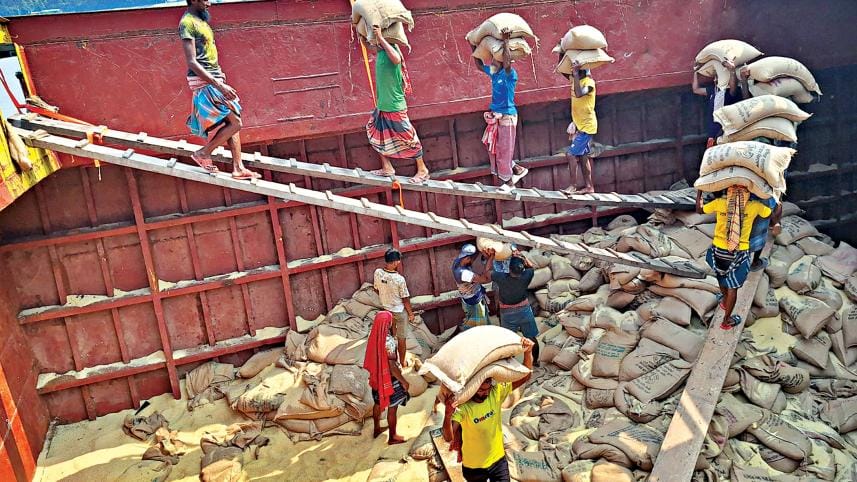Inflation outpaces wage growth for 34 months straight

Many low-income and unskilled workers in Bangladesh's agriculture, industrial and service sectors are being compelled to reduce consumption as rising inflation eroded their real incomes over the past three years.
According to the Bangladesh Bureau of Statistics (BBS), inflation had outpaced wage growth for 34 months up till this November in spite of the latter increasing slowly since January 2021.
The wage growth rate was 8.10 percent in November, which was 3.28 percentage points below the inflation rate of 11.38 percent that month, showed the Wage Rate Index (WRI) of the BBS.
This gap was the second highest in at least a decade. The highest gap between the inflation and wage growth rates was 3.73 percentage points, coming about in July this year.
This widening gap is forcing low-income and unskilled workers to cut consumption amid falling real incomes, according to analysts.
"The gap has been persistently pushing low and limited-income groups to the extreme for years," said Mustafa K Mujeri, executive director of the Institute for Inclusive Finance and Development.
"When high inflation persists for a long time, it will definitely impact peoples' purchasing power and food intake habits," he added.
High inflation, particularly food inflation, has affected the purchasing power of low-income people and forced them to cut back on nutritional foods, he said.
Mujeri expressed concern about the status of nutritional food intake by children and women.
"Due to the economic hardships of low-income groups, children and women become the worst victims," he said.
"If once any infant falls into malnutrition, it can never be recovered. It may cause permanent damage to their body," he added.
In November, food inflation in urban areas stood at 14.63 percent, which especially hit the urban poor.
Food inflation has been hovering above 9 percent since May 2023 and exceeded 9.5 percent in each month of FY24 except February and June.
The overall wage growth in the agriculture sector was 8.36 percent that month, up by 0.04 percentage points from August, while that of the industrial sector increased by 0.04 percentage points to 7.73 percent.
Likewise, wage growth in the service sector advanced by 0.03 percentage points to 8.40 percent.
The WRI considers the wages of informal workers, who get paid on a daily basis, across 63 occupations in the agriculture, industry and service sectors.
Regarding persisting inflation, Mujeri said the former government could not reduce inflation with its monetary policy as it failed to implement the right measures at the right time.
"Implementing a contractionary monetary policy is not enough to fight inflation. There is a need to integrate multiple policies here," he added.
Mujeri, a former chief economist of the Bangladesh Bank, said there was no alternative to ensuring sufficient production in order to stabilise the market.
"Still, the government has failed to stabilise the kitchen market," he said.
"In this situation, the month of Ramadan is coming, I don't see any hope to cool the inflation," he said.
"The recent nationwide indefinite strike (by water transport workers) may push prices further up in the kitchen market," he added.
The water transport workers have called the strike demanding a proper investigation into Monday's killing of seven crewmen onboard MV Al-Bakhera in Chandpur.
Real income reductions caused by ongoing inflationary pressure over the past two years have pushed at least 78 lakh people into poverty, according to a study by private think-tank Research and Policy Integration for Development (RAPID).
This includes 38 lakh who have become extremely poor, it said.
Additionally, another 1 crore people are at risk of falling below the poverty line due to continued inflationary pressures, it added.
Echoing the same sentiment as Mujeri, RAPID Chairman MA Razzaque said that when real income falls, it definitely prompts people to go for cutting consumption.
"It may happen in multiple ways, like sometimes people take lower priced essential foods, avoid repeated meals, ignore basic needs and so on," he added.




 For all latest news, follow The Daily Star's Google News channel.
For all latest news, follow The Daily Star's Google News channel.
Comments